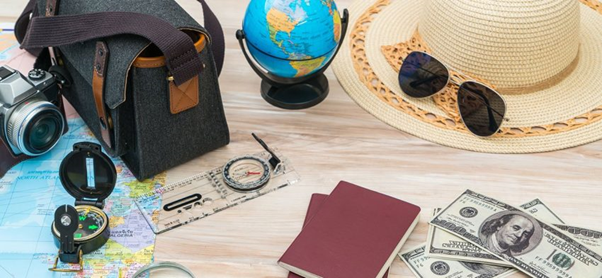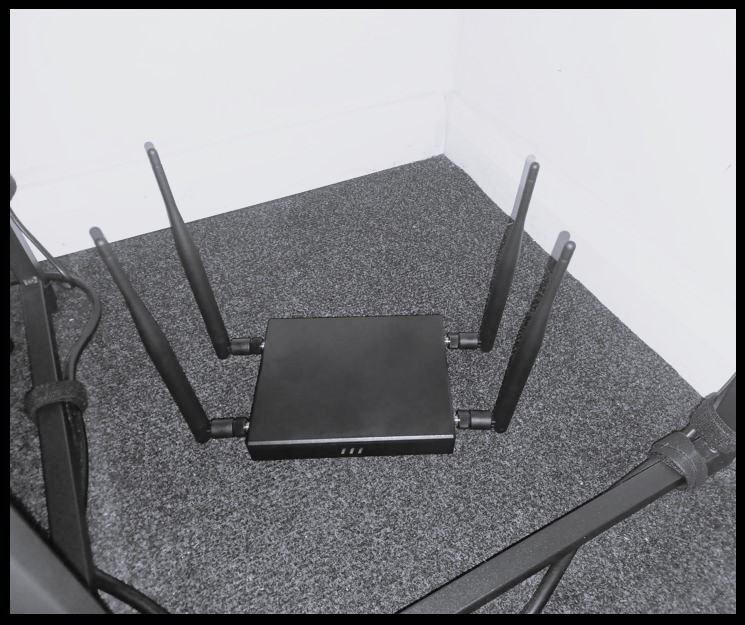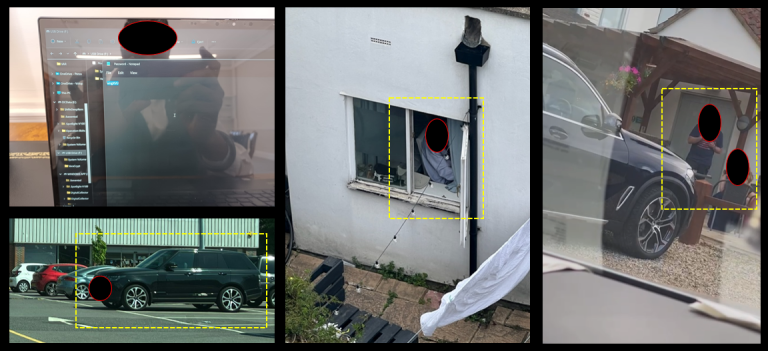Travel security:
Here at Valkyrie, we have had enquiries about travelling overseas and personal security. Due to the easing of Covid restrictions, many of our clients have been asking us about their security and safety whilst travelling. This document explains the situation and give advice as to what one should do.
It appears overseas travel is slowly returning to ‘normal’. However, covid disruption remains a risk, with border closures, testing requirements, movement restrictions or quarantine rules – all of which if not in place already can be introduced at short notice. Experts believe some countries will follow the UK’s lead in reducing restrictions while others will be less eager to ditch their restrictions. Travellers should continue to plan carefully.
Despite the ongoing concerns and issues associated to covid travel remains an exciting adventure. However, once at a new and exciting location, it’s easy to get caught up in the thrill of adventure. But don’t forget about travel security and safety considerations while abroad. From drive-by bag snatchers to identity thieves to much more dangerous criminals like kidnappers and sex traffickers, there’s always some story in the news about someone taking advantage of travellers. Thankfully the vast majority of travellers will never fall victim to anything more serious than pick-pocketing. However, if you’re planning your next trip and wondering how to travel safely the following are easy ways to stay safe from scams, theft, and other common security/safety concerns while traveling.
Research your destination:
Get to know your destination in depth before you arrive. Read traveller reviews. When you check in at a hotel or hostel, ask for recommendations about which neighbourhoods are safe and which are not so safe and mark places to avoid on your map. Check advice on the Government and official websites (e.g. https://www.gov.uk/foreign-travel-advice ). Know who to call in an emergency. Get the contact information for the nearest embassy or consulate, police station, and other local emergency departments. Input them into your mobile but also write them down so you’ll have quick access to them in the event of an emergency or you lose or have your phone stolen.
Stay aware of your surroundings:
Don’t let your guard down, keep an eye on your personal belongings at all times and use good judgment when talking to strangers. You should always pay attention to what’s going on around you, whether you are in a crowded tourist spot or walking down an empty street. Would-be offenders often seek out people who are distracted or disengaged from their surroundings to target. This is particularly important for solo travellers. Trust your instincts: if someone or some place is making you uncomfortable, there’s mostly likely a reason. Often our subconscious picks up on things that we aren’t consciously aware of, and that’s where our “gut feelings” come from. Listen to those feelings, they will help you stay safe.
Don’t draw attention to yourself:
People who look like they’re from out of town are especially vulnerable to crime, so try to blend in as much as you can (commonly referred to as being the ‘grey person’). Choose inconspicuous clothing that won’t attract attention. Be discreet when looking at maps and approach people carefully if you need to ask for directions. Avoid wearing expensive jewellery or watches as it will make you a more likely target for robbery.
Use the right bag
Small rucksacks (‘daysacks’) and cross-body-bags are safer than traditional shoulder or handbags and can prevent people from grabbing your bag as they run or drive by. There are plenty of bags made specifically for travellers with features such as slash-proof straps, RFID blockers, and locking zips. Don’t pack valuables in outer pockets and make sure pockets and zips are secure. Invest in a good bag that suits your needs and preferences – again, avoid anything flashy. Consider carrying a lock and use it especially if staying in hostel type accommodation. Even if you’re not staying in a hostel, having a travel lock that can secure your bag to your seat or chair while dining or in transit will help keep your valuables safe from theft.
ONLY Use reputable transportation companies:
Research which taxi companies are reputable before you arrive at your destination and only use those. If you’re ride-sharing using an app like Uber or Lyft, double check your driver’s vehicle information and verify their name before you get in the car with them. In taxis, keep bags with valuables between your feet or in the middle seat.
Be smart about your money:
Any solid resource of travel safety information will tell you that it’s never a good idea to carry large amounts of cash. Instead, open an account with an international bank or credit card company so you can use local ATMs. If you absolutely must withdraw large amounts of cash at once, leave the bulk of it locked up safely in your hotel or hostel and carry only what you’ll need for the day. When using ATMs, try to use only those that are inside or attached to banks as these are less likely to have been tampered with by criminals. Never keep all of your money in one place. Keep cash and credit cards in two or three different places so that if one of your stashes is stolen you aren’t left completely empty-handed.
Secure your valuables:
Only bring what you need on your trip and out of your room and leave other valuables behind. Don’t tempt anyone by leaving money or expensive items unattended in plain sight. Secure any cash, cards or forms of identity left in your room. If your room lacks a safe or has one that’s easy to walk out with, use a lock on your largest suitcase or ask at the reception if they have a secure alternative.
Check in with friends and family regularly:
No matter whether you’re on an overnight trip or a month-long international journey, it’s always a good idea to let friends or family back home know. Before you leave let someone know your itinerary and update them of any changes of plans (short texts will suffice but make sure they acknowledge the text). Get into the habit of checking in with a close friend or family member back home at the end of each day. This can seem like a hassle, but ultimately it’s better to be safe than sorry. If something terrible were to happen, you’ll get help faster if someone knows where you were supposed to be that day.
Make copies of important documents:
You never know when you might need a copy of your passport, driver’s license or another form of identification (stolen or lost). Scan these documents to save online and print out a couple of hard copies. That way, you won’t be scrambling to find proper documentation if you need to get home. Maps can be crucial in a jam. Hard-copy maps are a great back up for your devices, and reduce time spent walking around looking down at your phone. These can be actual maps, or just print outs of Google maps or map image search results. Have at least one map app on your smart phone. If you don’t have international data, view maps on Wi-Fi and take screenshots.
Try to avoid using public Wi-Fi:
Don’t let the convenience of Internet access cloud your judgment. When you use public Wi-Fi, hackers looking to steal valuable information can access your data including credit card or Social Security numbers. If you do need wireless Internet service, set up a virtual private network (VPN) that will allow you to access the Internet securely while traveling. When it comes to electronics and travel security, only take what you need, so there are less items and information to secure. Back up any devices you’re taking before departure.
Safeguard your hotel room:
Even if your hotel has strong security measures in place, there are steps you can take to make your room safer. Lock and dead-bolt the door and keep your windows shut. You can buy a jammer, which is a portable device that slips under the door for another layer of protection. Try to give the impression that you’re in your room even when you’re away, such as placing the ‘Do Not Disturb’ sign on the outside of your door and keeping the blinds or windows closed. Don’t let any strangers into your room, even if they say they work for the hotel. You can always call the front desk to check whether someone was ordered by hotel staff to come to your room.
Drink responsibly:
Probably one of the most important safety tips for travellers. Many people enjoy exploring the local nightlife while traveling, and there’s nothing wrong with that. But keep in mind that it’s even more important than ever to drink responsibly when you’re out and about. When you’re away from home you’re more likely to get lost or end up in a dangerous area and being obviously drunk makes you an easy target for scams, robbery, or worse. Never forget the golden rule of safe drinking in public – keep an eye on your drink at all times and be aware of spiking.
Be aware of popular scams:
Research the location you’re visiting to see what the local scammers/criminals are up to. Scams range from RFID scanners to ploys using children to play on your sympathy. You’ll be less likely to fall for these scams if you’ve heard about them in advance.
Use APPS for alerts:
There are a variety of apps out there aimed to provide safety travel information and help travellers safe. Sitata is an example – it alerts users to potential dangers or disruptions to travel in real time. It also includes tips for avoiding the latest scams and helps users locate nearby hospitals. Set up a Google Alert to keep an eye on current events. Keep informed, but don’t let considering potential risks turn into unnecessary fear.
Health during travel:
One of the first rules of travel is to carry additional prescription medications, glasses and/or contact lenses (carry a copy of their prescription together with a covering letter from the doctor). Pack these and other critical items in your carryon luggage. Research if your destination requires vaccinations and whether your activities or locations warrant additional immunisations. Start early, some vaccines take a while to kick in or require multiple doses. Consult your doctor. If you need medical care while away, contact your doctor back home for advice or a second opinion. Embassies and consulates can help you find English-speaking doctors if required. Ensure you have medical travel insurance and its recommended it includes international medical evacuation. https://travelhealthpro.org.uk/factsheet/43/medicines-and-travel#:~:text=visited%20before%20travel.-,During%20travel,should%20be%20consulted%20for%20advice.
FINALLY – don’t forget to protect and secure your home when you’re away!





